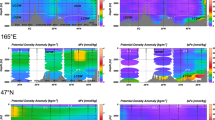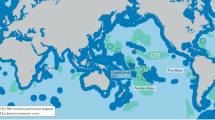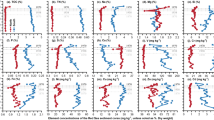Abstract
MANGANESE nodules were investigated during the Downwind Expedition, a part of the International Geophysical Year programme of the Scripps Institution of Oceanography of the University of California. Attempts were made to collect bottom photographs, cores and dredge hauls in the same areas, to measure the distribution at the surface and in depth, and to obtain large samples for physical and chemical analysis.
This is a preview of subscription content, access via your institution
Access options
Subscribe to this journal
Receive 51 print issues and online access
$199.00 per year
only $3.90 per issue
Buy this article
- Purchase on Springer Link
- Instant access to full article PDF
Prices may be subject to local taxes which are calculated during checkout
Similar content being viewed by others
References
Murray, J., and Renard, A. F., “Deep-sea Deposits”. H.M.S. Challenger, Sci. Results, 362 (1891).
Goldberg, E. D., and Arrhenius, G. O. S., Geochim. et Cosmochim. Acta, 13, 198 (1958).
Author information
Authors and Affiliations
Rights and permissions
About this article
Cite this article
MENARD, H., SHIPEK, C. Surface Concentrations of Manganese Nodules. Nature 182, 1156–1158 (1958). https://doi.org/10.1038/1821156b0
Issue Date:
DOI: https://doi.org/10.1038/1821156b0
This article is cited by
-
New constraint on the maintenance of Mn nodules at the sediment surface
Nature (1980)
-
Manganknollen im Meer
Die Naturwissenschaften (1971)
-
Manganese Nodules, Topography and Thickness of Quaternary Sediments in the Central Pacific
Nature (1966)
Comments
By submitting a comment you agree to abide by our Terms and Community Guidelines. If you find something abusive or that does not comply with our terms or guidelines please flag it as inappropriate.



